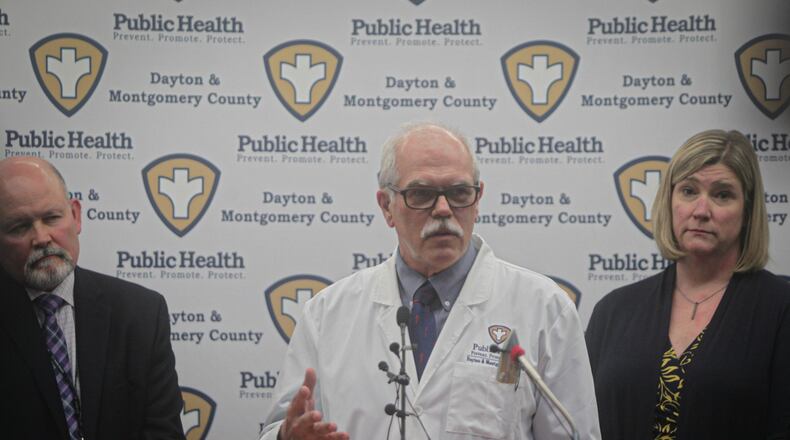And according to the data so far, most people do get better.
RELATED: How to get expert answers to your coronavirus questions
The Centers for Disease Control and Prevention (CDC) has a "what you should know" page that addresses many of the basic questions surrounding the COVID-19 illness. Bookmark it and get familiar with it.
The advice from health professionals has been essentially to stay home if you are "mildly ill" and avoid contact with others.
Older patients and individuals who have severe underlying medical conditions or are immunocompromised should call their health care provider early, even if their illness is mild, and listen to what the provider's advice is.
Your personal doctor or provider knows you best and is a good resource to get your answers from.
Monitor your symptoms.
If you have severe symptoms, such as persistent pain or pressure in the chest, new confusion or inability to arouse, or bluish lips of face, call your health care provider or emergency room and seek care immediately, according to the CDC.
Call 911 if you are having a medical emergency.
RELATED: 'Unprecedented': Ohio makes sweeping changes to slow coronavirus spread
As much as possible, you stay away from others. You should stay in a specific “sick room” if possible, and away from other people in your home. Use a separate bathroom, if available.
The CDC says you are sick you should wear a facemask (if available) when you are around other people (including before you enter a health care provider’s office).
If you are caring for others, the CDC advises that if the person who is sick is not able to wear a facemask (for example, because it causes trouble breathing), then as their caregiver, you should wear a facemask when in the same room with them. Visitors, other than caregivers, are not recommended.
Facemasks are now in short supply and the supply is now being steered toward front line workers who are most at risk. The CDC notes at home you can improvise with a scarf or bandana. There's instructions online on how to make a cotton mask for yourself.
Assign one person to care for the person who is sick, ideally someone who is in good health and has no underlying conditions, the WHO said.
The caregiver should wash their hands after any contact with the sick person or the person’s immediate environment.
People sick from the coronavirus outbreak can still infect others after they stop feeling sick, so these measures should continue for at least 2 weeks after symptoms disappear, said the World Health Organization. Visitors should not be allowed until the end of this period.
Call ahead before you see your health care provider and tell them if you think you may have COVID-19, the CDC advises.
When it comes to prevention, flu shots don’t protect against the coronavirus outbreak but can help you stay healthy and keep health care providers from being too burdened.
The flu shot can also help prevent you from getting an illness with symptoms that could be confused with the coronavirus outbreak.
Meanwhile, don’t lose sight of something the Associated Press and others have reported: Most people have mild cases and most people recover from the coronavirus outbreak.
According to the World Health Organization, people with mild illness recover within about two weeks, while those with more severe ailments may take three to six weeks to rebound.
Have more questions? Here’s some authoritative CDC and World Health Organization links where you can get answers straight from the experts:
What symptoms should you watch for
What steps to take to prevent illness

